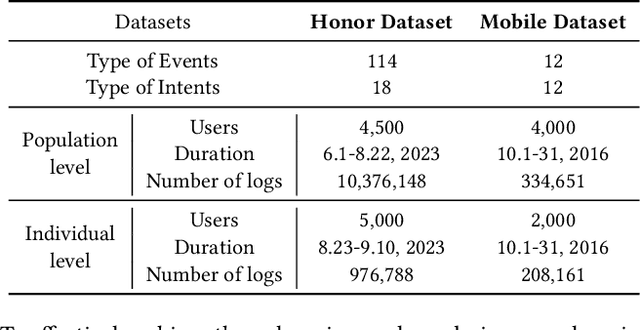A Population-to-individual Tuning Framework for Adapting Pretrained LM to On-device User Intent Prediction
Paper and Code
Aug 19, 2024



Mobile devices, especially smartphones, can support rich functions and have developed into indispensable tools in daily life. With the rise of generative AI services, smartphones can potentially transform into personalized assistants, anticipating user needs and scheduling services accordingly. Predicting user intents on smartphones, and reflecting anticipated activities based on past interactions and context, remains a pivotal step towards this vision. Existing research predominantly focuses on specific domains, neglecting the challenge of modeling diverse event sequences across dynamic contexts. Leveraging pre-trained language models (PLMs) offers a promising avenue, yet adapting PLMs to on-device user intent prediction presents significant challenges. To address these challenges, we propose PITuning, a Population-to-Individual Tuning framework. PITuning enhances common pattern extraction through dynamic event-to-intent transition modeling and addresses long-tailed preferences via adaptive unlearning strategies. Experimental results on real-world datasets demonstrate PITuning's superior intent prediction performance, highlighting its ability to capture long-tailed preferences and its practicality for on-device prediction scenarios.
 Add to Chrome
Add to Chrome Add to Firefox
Add to Firefox Add to Edge
Add to Edge